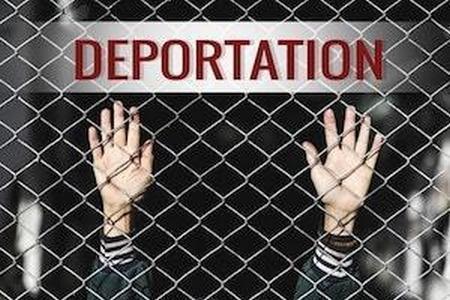Recent Blog Posts
Understanding the Risks of a DIY Divorce
 Thanks to technology, people can now find the answer to almost any question in the world within just a matter of seconds. They can connect with family and friends from around the world. Interested persons can even learn how to rewire their own house or file for their own divorce – but is having such knowledge at one’s fingertips always a good thing? In the case of divorce and electrical work, perhaps not.
Thanks to technology, people can now find the answer to almost any question in the world within just a matter of seconds. They can connect with family and friends from around the world. Interested persons can even learn how to rewire their own house or file for their own divorce – but is having such knowledge at one’s fingertips always a good thing? In the case of divorce and electrical work, perhaps not.
Divorce is a Complex Process
Although DIY divorce options may try to convince you that the process is as simple as filling out the forms and filing them with the courts, nothing could be further from the truth. No two marriages or divorces are ever the same, nor should they be treated as such. Furthermore, laws vary by state, and not all DIY divorce options offer state-specific advice or information – and unfortunately, that can make divorce a far bigger and complicated mess than it would have been with appropriate legal assistance.
Four Strategies for Maintaining a Child-Centered Divorce
 Divorce has always been a potentially damaging process – especially for children. However, things have started to shift in family law over the last several years. More families are working together to ensure the health, happiness, and well-being of their children, even while they are going through the painful process of divorce. Known as the “child-centered divorce,” this phenomenon has even prompted some interesting trends, such as birds nest parenting and post-divorce selfies. If you would like to learn more about keeping your child at the center of your divorce, the following strategies can help.
Divorce has always been a potentially damaging process – especially for children. However, things have started to shift in family law over the last several years. More families are working together to ensure the health, happiness, and well-being of their children, even while they are going through the painful process of divorce. Known as the “child-centered divorce,” this phenomenon has even prompted some interesting trends, such as birds nest parenting and post-divorce selfies. If you would like to learn more about keeping your child at the center of your divorce, the following strategies can help.
Consider Your Timing Carefully
While there are situations that may dictate when you start the divorce process (i.e. domestic violence, etc.), most couples have the power to choose when they will begin. For those that have children, the timing should be considered carefully. Parents are encouraged to avoid divorce around the holidays and birthdays, during major family events, or when significant change is expected to occur. For example, if the child is about to start preschool, it may not be the best time to file. Instead, parents may wish to wait until their child has adjusted to their new school schedule to ensure they are ready and able to deal with the divorce.
Misconceptions About Authorized Immigration
 On August 2, 2017, the current administration unveiled a plan designed to convert the existing U.S. immigration system into a skill or merit-based structure, which would drastically curb documented immigration (as opposed to undocumented). While on paper, the plan merely appears to suggest mere procedural changes, conservative estimates show it would lead to a drop of approximately 50 percent in immigration overall, especially among those from non-English-speaking countries.
On August 2, 2017, the current administration unveiled a plan designed to convert the existing U.S. immigration system into a skill or merit-based structure, which would drastically curb documented immigration (as opposed to undocumented). While on paper, the plan merely appears to suggest mere procedural changes, conservative estimates show it would lead to a drop of approximately 50 percent in immigration overall, especially among those from non-English-speaking countries.
Uninformed pundits have been characterizing this as a positive, arguing that other immigrants will receive faster service than they would otherwise, and no one “undeserving” will be able to jump the proverbial queue. In reality, this is simply not how the U.S. immigration system works, and clearing up misconceptions like this can actually work in everyone’s favor—even citizens’.
Cellphone-Related Car Accidents Still Happen in Illinois Despite Ban
 Drivers in DuPage County and throughout Illinois are banned from using handheld electronic communication devices on the road (625 ILCS 5/12-610.2). However, a study conducted earlier this year suggests that a large percentage of Illinois car accidents continue to happen as a result of distracted driving and cellphones use.
Drivers in DuPage County and throughout Illinois are banned from using handheld electronic communication devices on the road (625 ILCS 5/12-610.2). However, a study conducted earlier this year suggests that a large percentage of Illinois car accidents continue to happen as a result of distracted driving and cellphones use.
To be sure, according to an article in the chtribune, about 25 percent of drivers involved in a crash were on their phones immediately before the collision occurred. In other words, drivers are breaking the law concerning handheld cellphone use, and they may be causing traffic accidents.
Understanding Illinois Cellphone Ban
Under Illinois law, a driver is prohibited from using a handheld electronic device behind the wheel, including cellphones, iPads, and laptops. The ban is designed primarily to prevent distracted driving, which is often caused by talking, texting, or surfing the internet on a smartphone.
Asylum Seekers Ordered Deported in Absentia
 In 2014, the United States experienced a surge of immigrants from Central and South America appearing seemingly en masse at its southern border. Many were deported upon encountering Customs & Border Patrol (CBP), but many were able to assert a claim of credible fear—they stated their intent to apply for asylum in the United States.
In 2014, the United States experienced a surge of immigrants from Central and South America appearing seemingly en masse at its southern border. Many were deported upon encountering Customs & Border Patrol (CBP), but many were able to assert a claim of credible fear—they stated their intent to apply for asylum in the United States.
Due to the immigration backlog in U.S. courts, many of these cases are just now coming up for review. However, a large portion of the asylum seekers have not appeared, and have been ordered removed in absentia.
While it may seem smart to not appear in court lest you be arrested, it is absolutely not the right choice to make. Failing to appear can actually make matters even worse for you.
The Normal Asylum Process
In a standard defensive asylum case (which is what most asylum seekers mount, as opposed to an affirmative asylum request where one turns oneself in to CBP), the applicant appears before an immigration judge with all the relevant information and pleads his or her case, usually alone, sometimes with an attorney (since immigration cases are administrative in nature, rather than criminal, the government is not required to furnish an attorney for the applicant). If his or her application for asylum is approved, then he or she is granted lawful permanent resident status, with his or her green card appearing in the mail later on.
How Does Helmet Usage Impact Liability in Motorcycle Accidents?
 If you are seriously injured in a motorcycle accident in DuPage County, who is liable for your injuries? The answer to that question depends upon many different factors, such as the type of accident and how and when the motorcycle accident occurred.
If you are seriously injured in a motorcycle accident in DuPage County, who is liable for your injuries? The answer to that question depends upon many different factors, such as the type of accident and how and when the motorcycle accident occurred.
Often, motorcycle accidents are caused by another motorist’s negligence. For instance, a passenger car driver might have been distracted and failed to notice a motorcyclist in his blind spot. Or, for example, a truck driver might not have gotten enough sleep the previous night and caused a drowsy driving accident.
In most scenarios like these, it may seem obvious that the other driver is at fault. But what happens if the motorcyclist sustained head injuries that could have been avoided if he had worn a helmet?
Understanding the Importance of Motorcycle Helmets in DuPage County
Do You Need an Attorney in an Uncontested Divorce?
 Uncontested divorces, or those in which the parties believe they can reach an agreement on the details of their divorce, might seem simple and straightforward. However, there are numerous challenges and obstacles that can quickly take a divorce from an amicable situation into a contentious one. As such, divorcing parties are encouraged to seek legal support, even if they plan to pursue an uncontested divorce. Learn why, and discover where you can find the assistance that you deserve, with help from the following information.
Uncontested divorces, or those in which the parties believe they can reach an agreement on the details of their divorce, might seem simple and straightforward. However, there are numerous challenges and obstacles that can quickly take a divorce from an amicable situation into a contentious one. As such, divorcing parties are encouraged to seek legal support, even if they plan to pursue an uncontested divorce. Learn why, and discover where you can find the assistance that you deserve, with help from the following information.
Asset and Property Division
Couples that are pursuing an uncontested divorce might assume that assets and property are split evenly between them. However, Illinois is an equitable distribution state, which means the estate is divided “fairly.” Of course, the term "fair" can mean different things to different people, which is why this issue is one of the most common reasons that amicable divorces turn contentious.
Avoiding Car Accidents Around School Zones
 Now that September is here, children in and around Chicago are returning to school. This means that drivers throughout DuPage County will be sharing the road with school buses and young pedestrians who are walking home from school or home from the bus stop. When drivers fail to take precautions near school zones, serious car accidents can happen.
Now that September is here, children in and around Chicago are returning to school. This means that drivers throughout DuPage County will be sharing the road with school buses and young pedestrians who are walking home from school or home from the bus stop. When drivers fail to take precautions near school zones, serious car accidents can happen.
It is extremely important for automobile drivers to be careful in any areas where children might be present and to know the laws surrounding passenger vehicles and school buses.
Millions of Kids Returning to School: What Do You Need to Know About Accident Risks?
According to a fact sheet from the AAA Foundation for Traffic Safety, about 55 million American kids go to K-12 schools, and about 13 percent of those children either walk or ride bikes. That number does not include the millions of kids who rely on school buses for transportation and walk home from bus stops.
Another Chance for the DREAM Act
 The Development, Relief and Education for Alien Minors (DREAM) Act has been proposed in Congress several times before 2017, with the most recent being 2011 (though in 2012 President Obama directed his administration to use the criteria contained in the DREAM Act in determining whether or not to deport young undocumented people). On July 20, 2017, it was introduced again, by Sens. Lindsey Graham and Dick Durbin, in a bipartisan initiative, and in a slightly different format than previously proposed.
The Development, Relief and Education for Alien Minors (DREAM) Act has been proposed in Congress several times before 2017, with the most recent being 2011 (though in 2012 President Obama directed his administration to use the criteria contained in the DREAM Act in determining whether or not to deport young undocumented people). On July 20, 2017, it was introduced again, by Sens. Lindsey Graham and Dick Durbin, in a bipartisan initiative, and in a slightly different format than previously proposed.
The Bill
Graham and Durbin, both members of the “Gang of 8” that authored a comprehensive immigration reform bill in 2013 yet never made it out of committee, have made it clear that they believe the best way forward is to explore extending Lawful Permanent Resident (LPR) status to Dreamers (the young people who would be affected by the passage of such a law).
Fighting a Child Relocation Request
 Learning that the other parent of your child wants to relocate is a lot like a punch in the gut. Your child, whom you may only see part of the time, could move, perhaps hundreds of miles away. If the relocation is a success, you know that you will see your child less often. The after-school stops for ice cream will end. There will be no more pickups from dance class when your ex-partner is stuck at work. Thankfully, you can attempt to stop a child relocation before it happens. The following information explains further.
Learning that the other parent of your child wants to relocate is a lot like a punch in the gut. Your child, whom you may only see part of the time, could move, perhaps hundreds of miles away. If the relocation is a success, you know that you will see your child less often. The after-school stops for ice cream will end. There will be no more pickups from dance class when your ex-partner is stuck at work. Thankfully, you can attempt to stop a child relocation before it happens. The following information explains further.
An Overview of the Relocation Process
Unless the other parent will be moving a short distance (limits are based on state and county laws), they must notify you, in writing, of their desire to move. Included in their notice should be information on when they intend to relocate, the address to which they are planning to relocate, and the duration of the relocation (some may be temporary). That notice is also filed with the court clerk. If you consent to the move, you can file a response letter with the court, giving the other parent permission to relocate. If you do not consent, you can contest the move, which places the decision in the hands of the court.
 English,
English,
 Spanish,
Spanish,
 Polish,
Polish,
 Urdu
Urdu












 Make a Payment
Make a Payment



